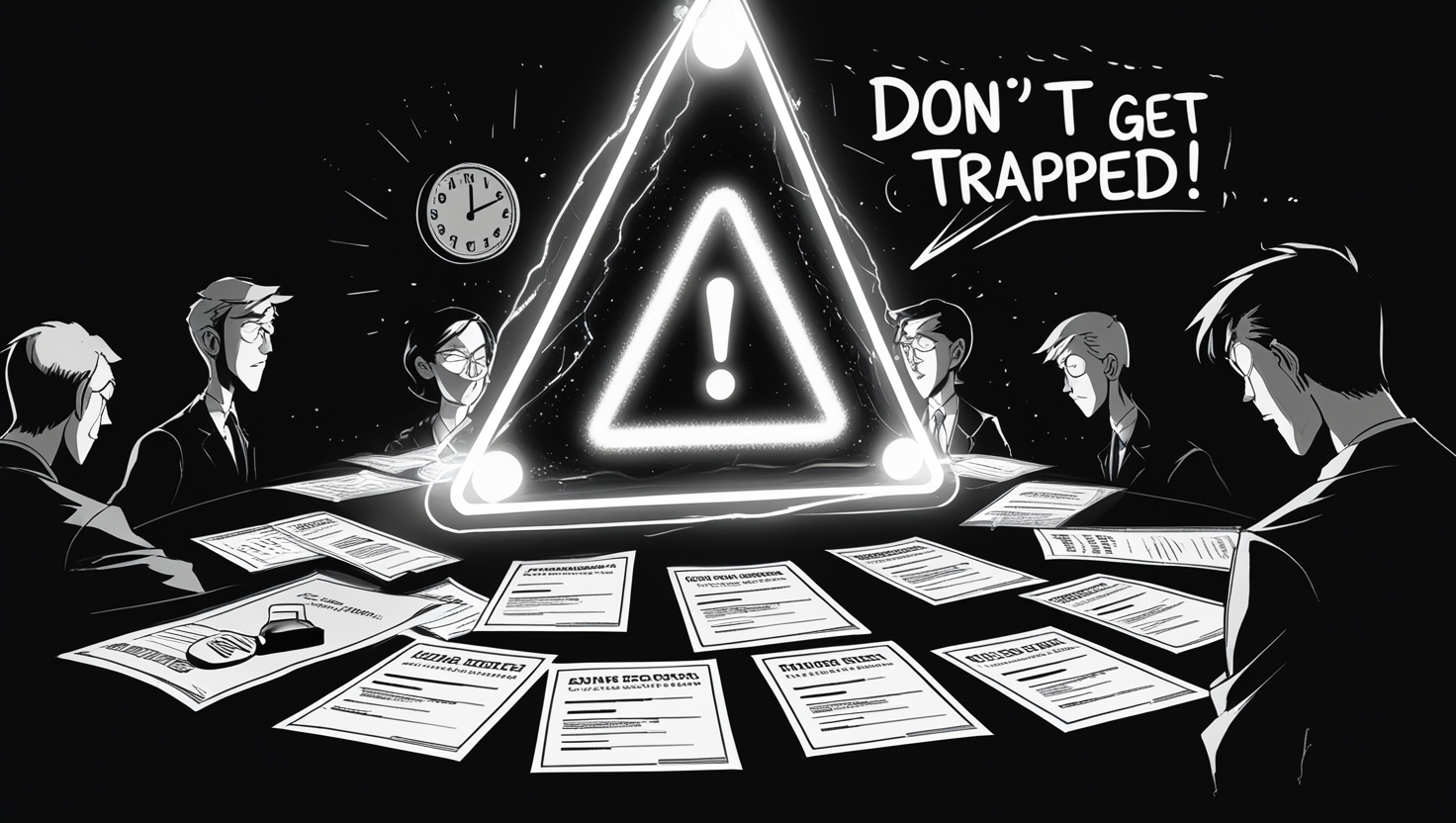In today’s digital world, the question “are online surveys safe?” reverberates among teenagers, casual users, and professionals alike. Many of us are intrigued by the opportunity to earn money or share our opinions through online surveys, but we all wonder: is it secure? This in-depth article unravels the hidden truths, exposes the common risks such as scams and data misuse, and explains how you can identify safe online surveys for money. If you’re curious about both the shining opportunities and the lurking dangers, read on to gain clarity and make informed decisions.
Understanding the Landscape of Online Surveys
The online survey industry has witnessed significant growth over the past few years. With popular platforms promising rewards for participating in surveys, it’s no surprise that the market has attracted millions of users worldwide. However, just like any online activity dealing with personal data, there are inherent risks. Reflect on your experiences: have you ever worried about entering your personal information on an unfamiliar website? Often, these concerns are justified when we consider that not all survey websites are built equal.
While the promise of easy money through safe online surveys for money is enticing, it is essential to distinguish between legitimate opportunities and potential fraud risks. On one hand, reputable sites use advanced security measures such as SSL encryption, have robust privacy policies, and are recognized by regulatory bodies. On the other hand, malicious sites are often crafted with the primary goal of exploiting personal data for scams, phishing attacks, or even identity theft.

Key Security Measures in Online Survey Platforms
Before diving into the risks, it’s important to understand the security mechanisms that protect users. A secure survey platform relies on several key principles that ensure both data protection and user privacy:
| Security Feature | Description |
|---|---|
| SSL Encryption | Ensures that data transferred between your device and the website is encrypted and secure. |
| Verified Certification | Platforms often display badges or certificates from trusted authorities, indicating that they meet established security standards. |
| Privacy Policies | Comprehensive privacy policies that clearly outline how your data is collected, stored, and used are a mark of a trustworthy website. |
These security measures are typically what you should look for when verifying if online surveys are safe to use. Have you ever checked the website’s URL for “https” or looked at its privacy policy before filling out a survey? Such practices can vastly reduce your risk exposure.
Common Risks Associated with Online Surveys
Although many survey platforms are currently safe, certain risks continue to persist in the online survey ecosystem. These range from minor privacy concerns to major threats like fraudulent schemes designed to steal sensitive information:
One of the primary risks is phishing. Cybercriminals often mimic legitimate survey platforms to lure unsuspecting users into providing their personal or financial details. If you ever receive a suspicious email or link prompting you to take a survey, pause and verify its legitimacy. Scammers can also create websites with a professional appearance but hide malicious intent behind a secure-looking facade.
Another danger is data misuse. Even if a website appears secure, some platforms may collect more data than necessary and utilize it for targeted advertising or even sell it to third-party companies. Always take a moment to read through the privacy policy and user consent forms when starting a survey.
These issues not only compromise your privacy but can also lead to financial losses if your sensitive data is misappropriated. It’s essential to ask yourself: “Do I really need to provide all this information for a survey?” Balancing participation benefits against potential risks is the key to making smart decisions in the ever-changing online environment.
Trusted Platforms: How to Identify Safe Online Surveys
Many authorized platforms prioritize security and ethics, ensuring that users can safely participate in surveys without the constant worry of data breaches or scams. So, are online surveys safe? In essence, they are — provided that you know what to watch for. Consider the following factors when choosing a survey site:
Firstly, reputable platforms typically advertise their robust security measures such as SSL encryption, verified certificates, and openly accessible privacy policies. They also regularly offer transparency reports about how data is collected and managed. For instance, well-known survey companies often encourage users to research independent reviews or even consult regulatory websites like the FTC to confirm that they operate within legal boundaries.
Secondly, assess the longevity and reputation of the survey website. Established platforms usually have a well-documented history of secure practices. Numerous online communities have shared extensive user experiences, providing a wealth of anecdotal evidence on both the safety and performance of these sites.
If you’re excited by opportunities to earn money through feedback and opinions, consider checking out our article on free online surveys for more tips on maximizing your rewards safely. This guide builds on many of the same principles we’re discussing here and provides a beginner-friendly overview of how to start.
Practical Tips for a Secure Survey Experience
Keeping yourself safe online doesn’t take a degree in cybersecurity; a few practical measures will go a long way. When you engage with online surveys for money or other benefits, maintain a healthy skepticism and follow these guidelines:
Always start by checking that the site has a secure connection—look for “https” in the URL. Look for an SSL certificate, which means your data will be encrypted as it is transmitted. Always read the privacy policy very carefully: good sites specify exactly what data will be collected, how it will be used, and your user rights. If ever requested to provide some extremely personal information that appears to be unrelated to the survey subject, step back and reconsider it.
Curiosity can be a wonderful motivator. Ask yourself pointed questions like, “Is this survey really paying as much as it says?” or “Why do they want my email address if I’m just giving my opinion?” Ponder these considerations and, if something doesn’t quite feel right, don’t hesitate to investigate further or avoid it. Some survey sites even have user forums or a FAQ page that you can check out for others’ experiences and even exchange with customer support.
Also, spreading participation over the platforms can reduce risk. Rather than relying on one particular site alone, join a few good sources for diversification between opportunity and protection. Remember, though, that the internet is so huge—if at any time you discover you are being asked too much from your personal details by one survey platform, always remember there will be others more devoted to an improved security approach.
Setting Priorities: Privacy vs. Profit
When it comes down to it, the lure of potential earnings in the form of cash rewards, gift cards, or other benefits has made online surveys a widely accessible way to make extra money. However, are online surveys safe enough to justify sharing personal data? Here is where prioritization comes into play.
As you weigh the decision, think about your own personal data and privacy. While the rewards might be attractive, the safety of your sensitive information should never be compromised. The reality is that while many platforms deliver on their promises of safe online surveys for money, a few less scrupulous ones could jeopardize your financial or personal security.
Always question the authenticity of the survey site. Do they have clear contact information and a legitimate customer support channel? Is there ample evidence that other users have had a positive and secure experience? These thoughtful questions should be part of your decision-making process before sharing any personal details.
The Role of Regulation and Certifications
Government agencies and autonomous bodies play a major role in ensuring the safety of an online platform. Lower-level regulatory frameworks impose stringent compliance on survey firms on issues of data protection, user permission, and openness. Have you ever asked yourself how that trickle-down benefits your online safety? When a survey site boasts some of the most trusted organizations’ certifications, it is a very strong pointer that the site adheres to set security standards.
In the majority of regions, data protection laws like the GDPR in Europe have forced many online services to implement strict policies for protecting personal data. For children and teenagers who might be exploring online opportunities, the laws offer a further layer of protection, where companies are guaranteed to handle data ethically and responsibly.
This regulatory environment forms a key part of the debate on whether online surveys are safe. Knowing this and ensuring whether a given platform is compliant with local regulations helps you make informed decisions. Ask yourself, “Is this platform clear about its compliance with data protection legislation?” Knowing this is a make-or-break point in trusting a website with your personal details.
How Successful Users Share Their Experiences
Talking directly with friends, family, or online communities about their encounters with survey platforms can be incredibly insightful. Many users have shared their firsthand experiences and the small tips they’ve collected over time to guarantee a safer survey experience. Some say that using a dedicated email address for signing up on survey platforms has minimized the risk of spam. Others recommend reading reviews on multiple forums before making a commitment.
These anecdotal experiences help create a practical picture. Have you ever exchanged advice with peers about online safety? The shared wisdom of these communities can often be as valuable as the security measures alerting you to fraudulent sites. Combining personal experience with formal safety guidelines creates the most robust defense against the pitfalls of online surveys.

Data Security: A Continuous Journey
Cybersecurity is not a one-time check but an ongoing process. New threats constantly evolve, and even the most reputable survey websites must continuously upgrade their security practices to keep up with cybercriminals. This makes it essential for you as a user to stay updated. Regularly review any new terms of service or privacy policies presented by your favorite survey platforms. Ask yourself: “Has the website improved its security measures? Has anything changed?”
By doing this, you maintain control over your digital footprint while continuing to enjoy the benefits of online surveys for money. Being proactive and informed is your best defense against the potential risks of an ever-changing cybersecurity landscape.
Final Thoughts: Balancing Opportunity with Safety
Ultimately, the question remains: are online surveys safe? While there are undeniable risks, there are also numerous secure platforms that adhere to high standards of data protection. The key to navigating this complex world successfully lies in informed decision-making and cautious participation. Are you ready to make changes to your digital habits for improved safety? If you take a moment to examine a site’s encryption protocols, privacy policy, and customer reviews, you are already a step ahead in ensuring an optimal and secure experience.
In summary, prioritizing your personal cybersecurity by verifying authenticity, embracing regulatory guidelines, and learning from others’ experiences is essential for enjoying the rewarding benefits of safe online surveys for money. The opportunities remain vast, but so does the responsibility to keep your information secure in this digital era.
Where can I learn more about secure online survey practices?
You can begin by checking out our detailed guide on free online surveys as well as resources from reputable external sites like the FTC. These sources provide valuable insights and practical tips for a secure online survey experience.
Can reading privacy policies really make a difference?
Absolutely. Privacy policies give you insights into how your data is collected, stored, and potentially shared. It’s a straightforward way to assess if the potential rewards are worth the risk involved in revealing personal information.
What risks should I be aware of when participating in online surveys?
The most common risks include phishing attempts, data misuse, and fraudulent websites that mimic legitimate survey platforms. It is essential to avoid providing unnecessary personal information and to verify the legitimacy of any survey before participating.
